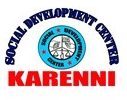
Alumni profile: Aye Aung
Q: Can you give some information about your history?
A: In 2006 – 2007, I joined with a Karenni young people’s group. Later in 2011 – 2012, through a relationship with Karenni Youth Organisation (KnYO), I joined the Karenni Social Development Center. After completing SDC, I joined with the Union of Karenni State Youth (UKSY) and I have been serving for my community until today.
Q: Since graduating from SDC, what have you achieved?
A: After finishing SDC, I joined a women’s leadership training course. I have also participated in a workshop concerned with elections and leadership. I have had the opportunity to meet people at the grassroots level. Therefore, I am aware of our people’s problems
Q: How did studying at SDC help you?
A: By attending SDC, I have learnt effectively about human rights, democracy, environment and the rule of law. I have sufficient awareness of these issues. In addition, I have some skills of English and Computer.
Q: What do SDC alumni do...

